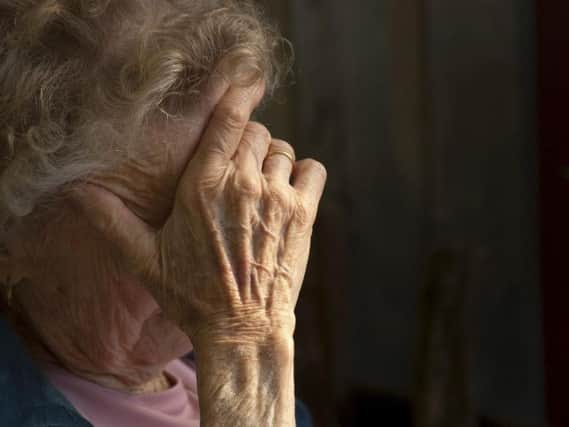100-plus fastest growing age group, figures show


Some two out of every 10,000 people have lived to see their 100th birthday or more, or 14,910 in 2016, up from 7,750 in 2002. Female centenarians outnumber males by five to one.
Last year, there were also more than 571,000 people aged at least 90 years old - the most ever recorded by the Office for National Statistics (ONS).
Advertisement
Hide AdAdvertisement
Hide AdThe boost in the number of people living into much older years is partly down to a baby boom following the First World War. Factors including better healthcare and nutrition, improved living standards and less smoking also contribute to higher rates of ageing.
Ngaire Coombs, an ONS statistician, said: "The population aged 90 and over grew rapidly in recent years, but this was largely driven by people who were born during the post World War One baby boom reaching age 90 and progressing through the oldest ages, causing both population growth and ageing within this age group.
"As these people have now largely progressed through the oldest population, growth and ageing of the 90 and over population have slowed. Despite the growth in this population, people aged 90 and over still make up less than 1% of the total UK population."
The likelihood of men surviving into their 90s has more than quadrupled since the early 1980s, and now stands at 21%. For women, it has more than doubled in the same time period, to 32%.
Advertisement
Hide AdAdvertisement
Hide AdStatisticians also found a "wave-like effect" among nonagenarians, thought to be a consequence of fluctuating birth rates during and after the First World War.
However, the rate of increase in the share of the population living to age 90 has slowed to 0.3%, as a result of slowing life span growth overall.
Jane Ashcroft CBE, chief executive of housing charity Anchor, which hosts more than 160 centenarians in its retirement homes, said: "It's fantastic to hear that so many of us are now living into our 100s in the UK, and it's important we celebrate that we are living longer thanks to medical advances and better living conditions.
"We must, however, not forget that with an ageing population comes greater responsibility to cater for our older people living well into retirement. As the figures increase, government must step up to ensure good social care, housing and healthcare remains a priority for older people - who all too often fall through the cracks.
Advertisement
Hide AdAdvertisement
Hide Ad"The sector eagerly awaits proposals on social care and a review of funding and reform. It's a chance for policymakers to show they value our ageing population."
The latest figures for life expectancy at birth are 79.2 for men and 82.9 for women.
Janet Morrison, chief executive of older people's charity Independent Age, said: "These figures show a remarkable rise in the number of people aged 100 or over. We should certainly celebrate the fact that there are now more than 14,500 centenarians living in the UK, with huge advances in public health and medicine to thank for this growth.
"But it is less obvious what is driving the recent slowdown in life expectancy. If trends continue, and growth in life expectancy continues to tail off, we could be looking at the very serious problem of shortening life spans."